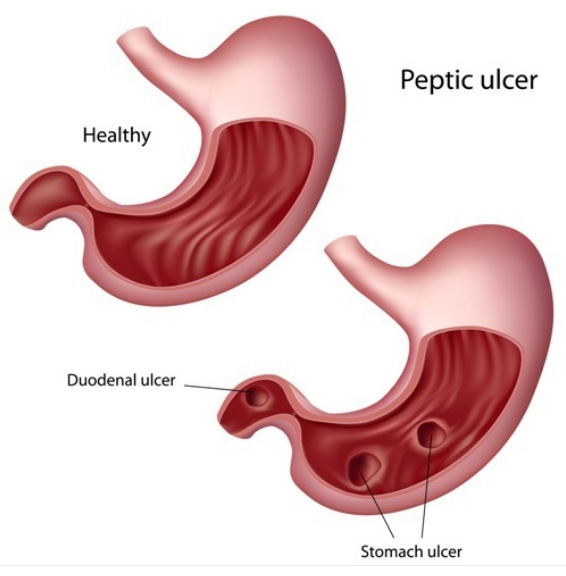Diverticula are the small, pouch-like protrusions occurring in the digestive tract, especially in the lower areas of the large intestine, i.e. the colon. These are common in people 40 years or above. This condition is called Diverticulosis, and when the diverticula get inflamed and infected, and then it is called Diverticulitis. It can cause severe nausea, abdominal pain and drastic change in bowel habits.
Causes of Diverticulosis and diverticulitis
The commonest cause of diverticulosis is long-standing constipation. As a result of increased pressure within the colon, diverticula arise from the weaker sections of the muscle layer of the colon. When one of these diverticula gets infected due to obstruction by fecal particles or loss of blood supply, its called diverticulitis and is associated with severe lower abdomen and fever.
Risk Factors
The risk factors include a diet low in fiber and high in red meat, obesity, lack of physical activity, increasing age, alcohol intake, smoking, genetics and residence in western countries
Complications
Diverticulitis has the potential to take a complicated course with abscess/ pus formation around the colon due to rupture of the diverticula. Abscess can be small or large depending on the extent of inflammation, with more severe inflammations leading to rupture of abscess within the abdominal cavity.
Diagnosis:
Diverticulitis is suspected when a typical elderly patient with longstanding constipation presents with acute lower abdomen predominantly on the left side, along with fever and vomiting. Some initial blood tests might indicate the presence of inflammation and a CT scan of the abdomen would confirm the diagnosis
Treatment:
This depends on whether it is Uncomplicated or Complicated Diverticulitis.
Uncomplicated diverticulitis can be treated as an outpatient with appropriate antibiotics, pain killers and laxatives to relieve constipation. Repeated diverticulitis requires a planned surgery to remove the affected portion of the intestine.
Complicated diverticulitis would require hospitalisation involving intravenous antibiotics and if necessary, insertion of a tube to drain excess pus. Sometimes a large amount of pus / significant inflammation
of colon might require emergency open or laparoscopic surgery to remove the pus or remove the affected part of the bowel. During surgery if the intestine is severely affected, the healthy portion of the colon is temporarily brought put and sutured to skin, this is called a colostomy.
Once the patient recovers completely the process is reversed and the bowels are reconnected at a later date.
Recovery and follow up:
Once patients recover from diverticulitis, they are prescribed long term bulk laxatives and diet rich in dietary fiber to avoid constipation. Periodic colonoscopic examinations might be required to assess the extent of diverticulosis.
Quick Reply
*Dr.Kamalesh MS, DNB(GIS), FMAS, FICS, FACS, *
*Senior Consultant in GI, HPB & Laparoscopic surgery*
*Aster Medcity, Cochin -682027+919895490173*
Visit Us : surgicalgastro.com
Reviewed by: Dr KamaleshMail Us: surgicalgastrokochi@gmail.com
Book an Appointment @ surgicalgastro.com/book-appointment















